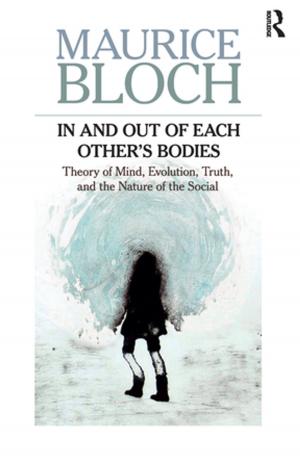Music and the Modern Condition: Investigating the Boundaries
Nonfiction, Entertainment, Music, Theory & Criticism, History & Criticism, Reference| Author: | Ljubica Ilic | ISBN: | 9781317092315 |
| Publisher: | Taylor and Francis | Publication: | April 29, 2016 |
| Imprint: | Routledge | Language: | English |
| Author: | Ljubica Ilic |
| ISBN: | 9781317092315 |
| Publisher: | Taylor and Francis |
| Publication: | April 29, 2016 |
| Imprint: | Routledge |
| Language: | English |
Two crucial moments in the formation and disintegration of musical modernity and the musical canon occurred at the turn of the seventeenth and the first half of the twentieth century. Dr Ljubica Ilic provides a fresh and close look at these moments, exploring the ways musical compositions shift to and away from ideological structures identified with modernity. The focus is on European art music whose grand narrative, defined by tonality and teleological development, begins in the seventeenth century and ends with twentieth-century modernisms. This particular musical "language game" coincides with historical changes in the phenomenological understanding of space and selfhood. A key concept of the book concerns musical compositions that remain without proper conclusions: if the wholesome (musical) work is a manifestation of wholesome subjectivity, the pieces Ilic explores deny it, reflecting conflict of the individual with previous beliefs, with contexts, and even within the self as the basic modern condition. The musical work is, in this case, still bounded and well-defined, but fractured by the incapability or refusal to satisfactorily conclude: the implicit cut forced upon it changes the expected musical flow or - speaking in spatial terms - it influences the musical form. By using the metaphor of space, Ilic explores: how the existence of a separate self as a primary feature of Western modernity becomes negotiated through awareness of the subject's own independence and individuality; innerness as something entirely separate from its surroundings; and the collective space of social interaction. Seeing musical storytelling as a metaphoric representation of selfhood, and modernity as a historical continuum, Ilic examines the boundaries and relationships between the musical work, the subject, and modern European history.
Two crucial moments in the formation and disintegration of musical modernity and the musical canon occurred at the turn of the seventeenth and the first half of the twentieth century. Dr Ljubica Ilic provides a fresh and close look at these moments, exploring the ways musical compositions shift to and away from ideological structures identified with modernity. The focus is on European art music whose grand narrative, defined by tonality and teleological development, begins in the seventeenth century and ends with twentieth-century modernisms. This particular musical "language game" coincides with historical changes in the phenomenological understanding of space and selfhood. A key concept of the book concerns musical compositions that remain without proper conclusions: if the wholesome (musical) work is a manifestation of wholesome subjectivity, the pieces Ilic explores deny it, reflecting conflict of the individual with previous beliefs, with contexts, and even within the self as the basic modern condition. The musical work is, in this case, still bounded and well-defined, but fractured by the incapability or refusal to satisfactorily conclude: the implicit cut forced upon it changes the expected musical flow or - speaking in spatial terms - it influences the musical form. By using the metaphor of space, Ilic explores: how the existence of a separate self as a primary feature of Western modernity becomes negotiated through awareness of the subject's own independence and individuality; innerness as something entirely separate from its surroundings; and the collective space of social interaction. Seeing musical storytelling as a metaphoric representation of selfhood, and modernity as a historical continuum, Ilic examines the boundaries and relationships between the musical work, the subject, and modern European history.















